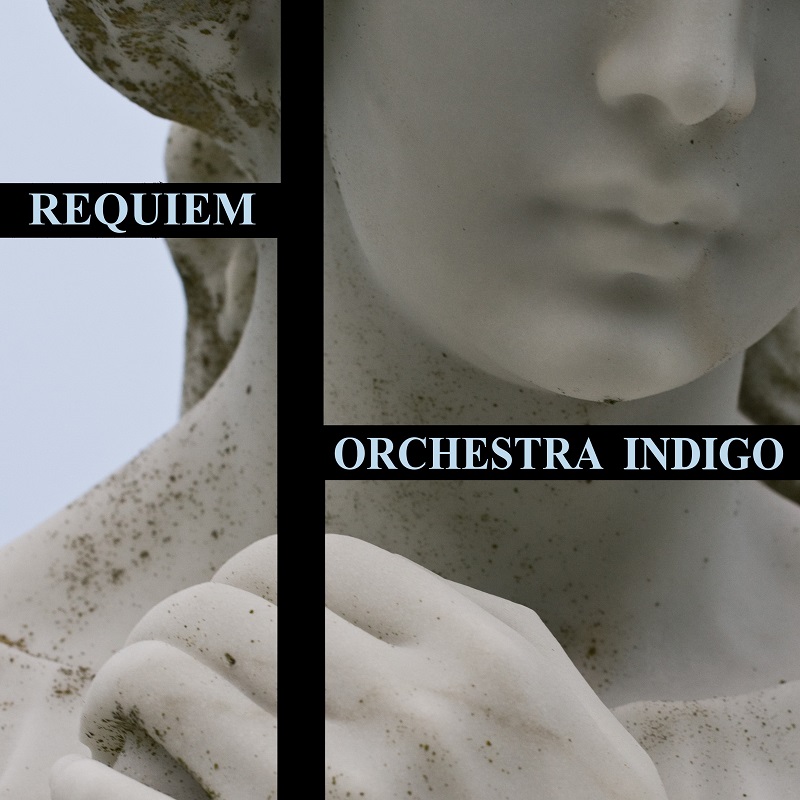Album Review—Requiem (Orchestra Indigo)

Going To Where The World Ends and A New World Begins . . .
‘Requiem’, meaning ‘elegy’ is not a popular topic in contemporary music that many artists would like to lay their hands on. So, Orchestra Indigo’s ‘Requiem’ is a bold and rather incomparable exploit in this domain. Upon its release, it is all set to become one of the masterly musical works in contemporary instrumental, new-age music.
Death is inevitable in life. No one born on this earth has stayed here for any abnormal period of time. Sooner or later, we need to quit our mortal coils and leave from here like anyone else. Though we have known this fact very well, we do find ‘Mortality’ a hard-to-digest topic.
Finally, when one dies, the soul has to reconcile with having to leave the earth once and for all. What follows death are the successive stages while moving to the other world. With its tracks named after the different stages of the soul’s journey after death, we can say Requiem is a kind of elegy to one’s own self. The artist has ably captured in instrumental music what and how the soul might feel while moving to the other world.

Reflecting on the motivation that steered him with the concept and production of ‘Requiem’, Rick Randlett (Orchestra Indigo) says, “As I reach a stage in life where I begin to contemplate my own mortality, this just seemed like a natural project to undertake.” Handling the theme of Requiem in instrumental music is not an easy task to do justice to. Nevertheless, this unusual theme has given him a challenging as well as rewarding canvas to allow the full play of his musical abilities.
Randlett also recounts the inspiration he carries from his college days of Verdi and Mozart’s requiems. ‘Requiem‘ is a unique orchestra electronic hybrid with neoclassical overtones. Resulting from this expedition are some relaxing waves of sound that envelope the listener into a spellbound state of mind till long after the last note is played off of the album.
1. Introit (4:00)
‘Introit‘ is a song or music played at the beginning of a service or worship. Starting with brisk notes, the final journey starts bidding adieu to the world. The first track sets the mood and backdrop to paint the total musical picture the artist intends to produce in the hearts of the listeners through ‘Requiem’. You get the feel of participating in an invocatory prayer.
2. Kyrie (3:34)
‘Kyrie‘ refers to short and usually repeated invocations in Christian liturgies usually noticed during the beginnings of religious services at Churches. The music in the second track follows cyclic or repetitive patterns and as the song progresses, it elevates the moods of the listener lifting the spirits to newer and higher planes of existence. With the tempo increasing, you begin to discover a serious purpose for the music in assisting your journey.
3. Dies Irie (4:34)
The decisive part of the journey after death is the Final Day of Judgment every soul has to face and pass through to decide the course its otherworldly journey will take. ‘Dies Irie‘ attempts to record mixed feelings in musical notes suggestive of surprises and disappointments the soul might encounter on the day of final judgment. I found this a masterly work in music counting the impact the music has on your heart.
4. Hostias (3:29)
‘Hostias‘ is the sacrificial offering or animal presented at the altar. During its journey after death, every soul has to find itself as ‘Hostias’ in front of God. This track is a bundle of solemn notes that accomplish a deep work into your inner being. There is a kind of reflection on the kind of life the soul lived while staying on the earth.
5. Lacrimosa (5:12)
‘Lacrimosa‘ is about grieving where the soul is confused about what will await it after death. There is an element of awe experienced about death. The fifth track straightly addresses your heart and lets you get rid of all the fears and confusion surrounding death. While you might laugh, cry and experience different kinds of emotions while going through the song, what remains at the end is a kind of reconciliation with death.
6. Offertorium (4:09)
The title of the sixth piece refers to the act of offering bread and wine to God during the Communion ceremony at the Churches. This song sounds totally different from the earlier pieces and suggests the element of surrendering to the will of the Almighty. Half the way through, the tempo changes which is suggestive of a kind of maturity overtaking the soul’s understanding of itself.
7. Sanctus (4:00)
Referring to the most important segment of people’s acclamations during a Mass, ‘Sanctus‘ is a joyful shout of thanks that praises the almighty at the conclusion of the preface prayer. The seventh song is made of joyful notes that move your spirits with a sense of gratitude for all the blessings received during and the afterlife.
8. Agnus Dei (3:43)
“Agnus Dei” means “Lamb of God”, which is a kind of chant addressing Christ. A number of the best composers in history have adapted this theme into the choral pieces they created. The eighth track has a predominant play of vocal elements mimicking the choruses sung at the church. You begin to feel a mood of veneration and prayer and get lost in the serene mood triggered by this song.
9. Lux Aeterna (3:51)
Meaning Eternal Light, the ninth track is suggestive of the soul entering the higher worlds and experiencing the splendor of God. The highly striking vocal elements and harmonies heard in this track evoke the mood of rejoicing the soul experiences at the sight of God in heaven.
10. In Paradisium (3:27)
“In Paradisium” translated in English as “Into paradise” has reference to an antiphon in the Western Church’s Requiem Mass. The choir sings In Paradisium as the body is taken out of the church. In this album, this song is suggestive of the soul’s entry into paradise. The musical notes deepen as the track progresses and the listener feels a kind of settlement with after-life experiences towards the end of this track.
11. Libra Me (4:46)
The final piece ‘Libra Me’ is a glorious composition starting with the bells beckoning you to the magnificent world you have reached now. The soul begins to feel that it has attained a glorious state of existence and will henceforth live with God in paradise. The listener experiences a sense of complete relaxation and refinement at the end of this stupendous composition.
Take Away
Randlett records that Requiem as a form in literature and music has always fascinated him right from his student days at the college. In this version, Randlett has tried to create the same flow and emotions of Verdi and Mozart’s requiems without using the Latin text, but through piano, synthesizers, and vocal sounds in a masterly fashion. I deem ‘Requiem’ an exceptional musical production in new-age music. Choosing the listen to it and adding it to your music collection is certainly going to add to your library’s richness and versatility. And never forget to come back to it whenever you want some respite in music.

 Album Review—Inner Sanctum
Album Review—Inner Sanctum  Album review—Back To My Roots
Album review—Back To My Roots  Album Review—Days of Gypsy Nights
Album Review—Days of Gypsy Nights  Album Review—Open by Stephen Wallack
Album Review—Open by Stephen Wallack